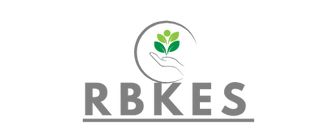Insurance is often regarded as a necessary safeguard against unforeseen events and risks, offering financial protection in case of accidents, health issues, or property damage. Whether it’s auto, health, home, life, or business insurance, having adequate coverage ensures that you are prepared for life’s uncertainties. Failing to obtain sufficient insurance coverage can expose you to significant risks that could lead to financial devastation.
In this article, we’ll explore the risks of not having adequate insurance coverage and why it’s essential to evaluate and secure proper insurance policies for different aspects of your life.
1. Financial Hardship and Out-of-Pocket Expenses
One of the most immediate consequences of not having adequate insurance coverage is the potential for overwhelming out-of-pocket expenses. If you are involved in an accident, fall ill, or experience damage to your property, and your insurance doesn’t cover all the costs, you’ll have to pay for the remaining expenses yourself. These costs can quickly escalate to amounts that are difficult to manage.
Examples of Out-of-Pocket Expenses:
- Medical bills after a serious accident or illness.
- Repair costs or replacement of property after a fire, natural disaster, or vandalism.
- Legal fees if you’re sued for damages or injuries you caused in an accident.
- Loss of income if you are unable to work and don’t have disability or life insurance coverage.
In some cases, the financial burden may even lead to debt, bankruptcy, or the need to liquidate assets to cover the costs.
2. Increased Liability and Lawsuits
Without adequate insurance coverage, you are at a higher risk of being held personally responsible for damages or injuries you cause to others. This is especially true with auto, property, or liability insurance. For example, if you cause an accident and don’t have sufficient auto insurance, you could be liable for the medical bills, car repair costs, and legal expenses of the other party involved.
In addition, in situations where you have no coverage or insufficient coverage, lawsuits can quickly drain your finances. Legal fees, settlements, or court-ordered judgments can leave you financially vulnerable and create long-term consequences.
Potential Risks:
- Auto accidents could lead to costly claims for medical care and property damage.
- Homeowner’s liability could result in significant out-of-pocket costs if someone is injured on your property.
- Business owners may face lawsuits or claims without adequate commercial insurance coverage, putting both personal and business assets at risk.
3. Property Loss and Damage
Property insurance, whether for your home, vehicle, or business, is essential to protect your belongings and investments. Without sufficient coverage, a disaster or accident could lead to severe losses that are not covered, leaving you responsible for replacing or repairing damaged property.
For instance, if your home is damaged in a fire and you don’t have enough home insurance coverage, you’ll be forced to pay out of pocket for repairs, which can be an enormous financial burden. Similarly, if your car is involved in a collision and you don’t have comprehensive or collision insurance, you’ll have to bear the entire cost of repairs or a new vehicle.
Examples of Property Loss Risks:
- Home damage from natural disasters like earthquakes or floods, which may not be covered under standard home insurance.
- Theft or vandalism of your personal property without renters or homeowners insurance to help replace stolen items.
- Car accidents where your vehicle is damaged but your insurance doesn’t cover the full cost of repair or replacement.
4. Health Risks and Medical Deb
Without adequate health insurance coverage, medical bills can quickly spiral out of control. Even a routine visit to the doctor can cost hundreds or thousands of dollars, and major medical procedures or hospitalizations could result in tens of thousands of dollars in debt.
In the case of serious illness or injury, lacking sufficient health insurance may prevent you from receiving timely care or even leave you in a situation where you cannot afford necessary treatments. Medical debt can severely affect your financial future, damage your credit score, and lead to long-term struggles.
Potential Health Risks:
- High medical expenses for surgeries, hospital stays, and specialty treatments without health insurance coverage.
- Delayed medical care due to financial constraints, which could lead to worsening health conditions or even preventable deaths.
- Medical bankruptcy as a result of overwhelming debt from unpaid medical bills.
5. Lack of Protection for Dependents
In the case of life insurance, not having adequate coverage can leave your loved ones vulnerable and without financial support if something were to happen to you. Life insurance is meant to provide financial security for your dependents, including your spouse, children, or anyone who depends on your income.
Without enough life insurance, your family may struggle to maintain their standard of living, pay for funeral expenses, or cover outstanding debts. Life insurance can also help with child education, paying off mortgages, or securing your family’s future.
Risks for Dependents:
- Dependents may face financial hardship after your passing without sufficient life insurance coverage to replace lost income.
- High funeral expenses may leave your family in debt and without the necessary resources to manage the aftermath.
- Inability to pay off debts or cover daily living expenses, leading to financial insecurity for your family.
6. Business Risk and Liabilities
Small business owners and entrepreneurs face significant risks when operating without adequate insurance. Insurance for businesses can cover various potential risks, including property damage, legal claims, employee injuries, and business interruption. Without the right business insurance, you expose yourself to financial losses that could destroy your business.
For example, if a customer is injured at your business and you lack general liability insurance, you could be responsible for the medical costs and legal fees. Similarly, if a key piece of equipment breaks and you don’t have equipment breakdown insurance, your operations may come to a halt, leading to lost revenue and potential layoffs.
Business Risks Include:
- Legal claims or lawsuits filed by customers or employees for injury, property damage, or negligence.
- Business interruptions due to accidents or disasters that impact daily operations, resulting in lost income.
- Property damage or theft that can set back your operations without adequate commercial property coverage.
7. Potential for Denial of Claims
Another risk associated with insufficient coverage is the potential denial of claims. If an accident or event occurs and you don’t have the proper coverage in place, the insurer may refuse to pay for the damages. This could happen if the incident is not covered under your current policy or if your coverage limits are too low.
For instance, if you have a car accident but only carry the minimum auto insurance coverage required by law, and your damages exceed your coverage limit, the insurer may only pay up to the limit, leaving you to cover the rest.
Conclusion
Not having adequate insurance coverage presents significant financial and personal risks. From facing overwhelming medical costs and legal liability to dealing with the loss of property or the death of a loved one, the lack of proper insurance can have lasting negative consequences. Whether it’s auto, health, home, life, or business insurance, it’s essential to assess your needs and secure sufficient coverage to protect yourself, your family, and your assets.
Regularly review your insurance policies, ensure that your coverage limits are appropriate for your circumstances, and consult with insurance professionals to tailor a policy that provides the best protection for you. By doing so, you can avoid the financial hardship and uncertainty that come with being underinsured.

